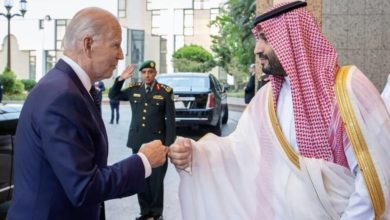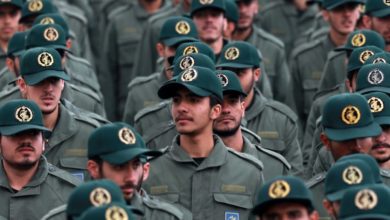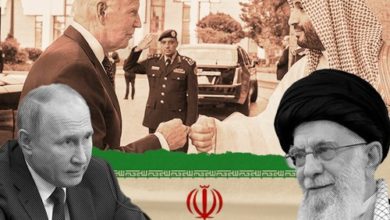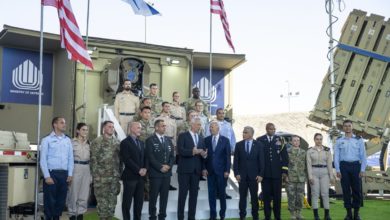While the Trump administration has dramatically increased the danger of a U.S. military attack on Iran, direct meetings between officials of the two countries have now become a possibility. During the Aug. 24-26 G7 summit, hosted by France, French President Emmanuel Macron invited Iranian Foreign Minister Javad Zarif to the site of the summit, the coastal resort of Biarritz. Zarif, other Iranians and some EU officials were in a room in the town hall, offsite from where the G7 summit was being held. Macron shuttled back and forth between G7 meetings and the diplomats at the town hall.
Reportedly, Macron pushed for a meeting between President Trump and Zarif during the summit, but Trump refused, saying it was “too soon.”
Through Macron’s mediation, word came of an upcoming meeting between Trump and Iranian President Hassan Rouhani. Expressing his enthusiasm, Macron said: “I want this meeting to happen, and I want there to be an agreement between the United States and Iran.” Trump was open to the idea, saying: “I think there is a really good chance we would meet … If the circumstances were correct or right I would certainly agree to that.” (WhiteHouse.gov)
Rouhani also showed a willingness to meet, stating: “If I knew that going to a meeting and visiting a person would help my country’s development and resolve the problems of the people, I would not miss it … Even if the odds of success are not 90 percent but are 20 percent or 10 percent, we must move ahead with it.” (Washington Post)
However, in subsequent comments, Trump reiterated that the sanctions would stay and that Iran could be extended a line of credit. “I have a good feeling. I think he (Rouhani) is going to want to meet and get their situation straightened out. They are hurting badly… So we are really talking about a letter of credit. It would be from numerous countries, numerous countries.”
Subsequently, Rouhani’s statement made clear that a direct meeting of the two presidents was not forthcoming under the current circumstances: “Without the U.S.’s withdrawal from sanctions, we will not witness any positive development … If someone intends to make it as just a photo op with Rouhani, that is not possible.”
Lifting sanctions a precondition for a meeting
It is not clear what caused Rouhani’s change of tone, from the initial cautious endorsement of a meeting with Trump to subsequently making the lifting of the sanctions the precondition for the meeting. It could be due to opposition by other factions within the Islamic Republic that are opposed to negotiating with the U.S. under the gun. After all, why would anyone want to negotiate with the very person who violated the agreement, the Joint Comprehensive Plan of Action, which all sides had signed.
It is also possible that Trump might have subsequently backed out of some measure of sanctions relief informally agreed upon on the sidelines of the G7 summit. Foreign Minister Zarif is a seasoned diplomat. It is hard to believe that Macron could get him to agree to a meeting between the two presidents with no prospect of sanctions relief merely to give Trump his photo-op.
Rouhani’s demand for the lifting of the sanctions is not some extreme, hardline demand. It is simply requiring the United States to meet its obligations under the JCPOA, the agreement the U.S. signed in 2015 and tore up in 2018. It is Trump who illegally pulled out of the accord and re-imposed sanctions, threatening huge punitive measures against any country trading with Iran. In effect, the United States is illegally forcing its unilateral sanctions against Iran on the whole world.
For the time being, a high level meeting between Iran and the U.S. is unlikely. If anything comes out of Macron’s effort, it may turn out to be some level of informal meetings on the sidelines of the UN General Assembly, starting on September 24.
“Iran Hawks”
Washington’s foreign policy establishment is dominated by “Iran Hawks,” headed by National Security Adviser John Bolton. Since the U.S. invasion of Iraq, Bolton’s mission in life has been to get the U.S. to invade Iran. “Boys go to Baghdad, but real men go to Tehran” has long been the mantra of Bolton and other neocons from the Bush II administration. Bolton and fellow “Iran Hawk” Secretary of State Mike Pompeo are opposed to the very idea of negotiations, let alone reaching agreements with Iran. Their policy is applying “maximum pressure” to make conditions ripe for the overthrow of the Islamic Republic, either through a U.S. military intervention or through a possible mobilization of counterrevolutionary forces within Iran.
Iran, on the other hand, definitely wants the sanctions to end. The sanctions have done great damage to the Iranian economy, turning growth into recession. According to IMF data, Iran’s economy grew by 3.8 percent in 2017. But, as a result of re-imposed U.S. sanctions, the economy shrank by 3.8 percent last year and is forecast to contract another 6% this year.
Sanctions fall short of their ultimate objective: regime change
To some extent, U.S. sanctions are meeting their goal of imposing economic hardship on the Iranian people. In particular, the working class is hit hard by rising prices and shrinking real income. Some commodities, including some less common medicines, are available in the market only sporadically, or not at all. However, the sanctions are falling far short of meeting their ultimate objective of regime change.
Back-to-back years of recession of 3.8 percent and 6 percent is no minor damage to the economy. But a 6 percent economic downturn is quite a ways from an outright economic collapse. Despite the relative effectiveness of the sanctions, stores in Iran are well-stocked. There are no food lines, no gas shortages. Water, gas and electricity are up and running, as are mobile and internet services. A big chunk of the population loosely called the “middle class” is still traveling, going to restaurants and cafes and engaging in other recreational activities, albeit at a lower rate than before.
Bolton may promise the MKO, his favorite pro-U.S./Israel opposition force abroad, that he will meet with them in Tehran in a few months. But even Bolton must know that the conditions in Iran are nowhere near a collapse of the state. If anything, the Trump administration’s blatant violation of the JCPOA and the imposition of restrictions on Iranian citizens traveling into the U.S., has made it much harder for a pro-U.S. opposition force to gain any kind of traction in Iran, irrespective of the economic downturn. The monarchists, the MKO, and other right-wing opposition forces that were bracing for an imminent collapse of the Islamic Republic, have had their hopes dashed. Despite the economic downturn, right-wing, pro-West propaganda have not gained traction.
Trump himself has been extremely hostile to Iran. Throughout his 2016 campaign, Trump promised his supporters to destroy the JCPOA, a promise he kept once in office. And, he has taken U.S. support for the colonial settler state of Israel, in particular for the ultra-right-wing government of Benyamin Netanyahu, to a new level. That is saying something, considering how pro-Israel every U.S. administration has been for decades. No wonder Trump considers himself to be the “chosen one.” Trump’s ultra-aggressive approach towards Iran is quite dangerous, raising the prospects of another U.S. military adventure in the Middle East. Still, to the chagrin of Bolton and Netanyahu, Trump has been reluctant to bomb Iran.
Talk of Trump-Rouhani meeting is significant
Trump would love to have a meeting with an Iranian leader if he can force Iran to make major concessions. He would love the publicity, and being at the center of international attention for potentially historic meetings.
One thing that makes Trump an unreliable president, in other words a poor CEO for the U.S. capitalist class, is that he is often too pre-occupied with his own ego to carry out the tasks required of the head of U.S. imperialism. His multiple meetings with Kim Jung Un, the leader of the DPRK, have served no purpose for the U.S. ruling class and were frowned upon by a near consensus of Washington’s foreign policy establishment. But these meetings have been somewhat useful for the North Korean leadership in the sense that they have lowered the level of tension, and made a U.S. military aggression against the DPRK far less likely.
Similarly, while the Macron-mediated diplomatic effort may amount to no concrete steps, it has shifted the conversation from the possibility of war to the possibility of a meeting between the two heads of state. Even if such a meeting does take place, it is unlikely to result in concrete results, as neither side seems willing to concede on the key issue of sanctions. Iran’s state, despite a weakened economy, is quite stable and unlikely to reach any sort of agreement with Trump that is substantially different from the JCPOA. The U.S., on the other hand, is unwilling to loosen its sanctions, even though they are clearly illegal.
Sanctions are a form of war
As far as the U.S. anti-war movement is concerned, in addition to organizing against a possible U.S. military aggression against Iran, we should also unequivocally stand in opposition to sanctions. What is standing in the way of a lasting peace between the two countries is not “hardliners on both sides,” as the liberal narrative would have it. The obstacle to peace is the ultra-aggressive criminal gang in Washington attempting to strangulate Iran using mafia tactics on an international scale. They are bent on crushing any state that runs independent of imperialist dictates, whether it be Iran, Venezuela or North Korea. U.S. sanctions against oppressed countries are not an alternative to war; they are a form of war. U.S. Hands off Iran!





